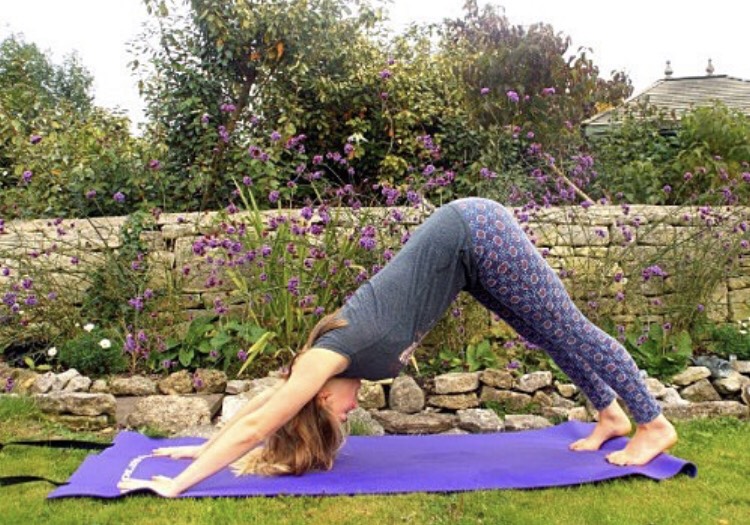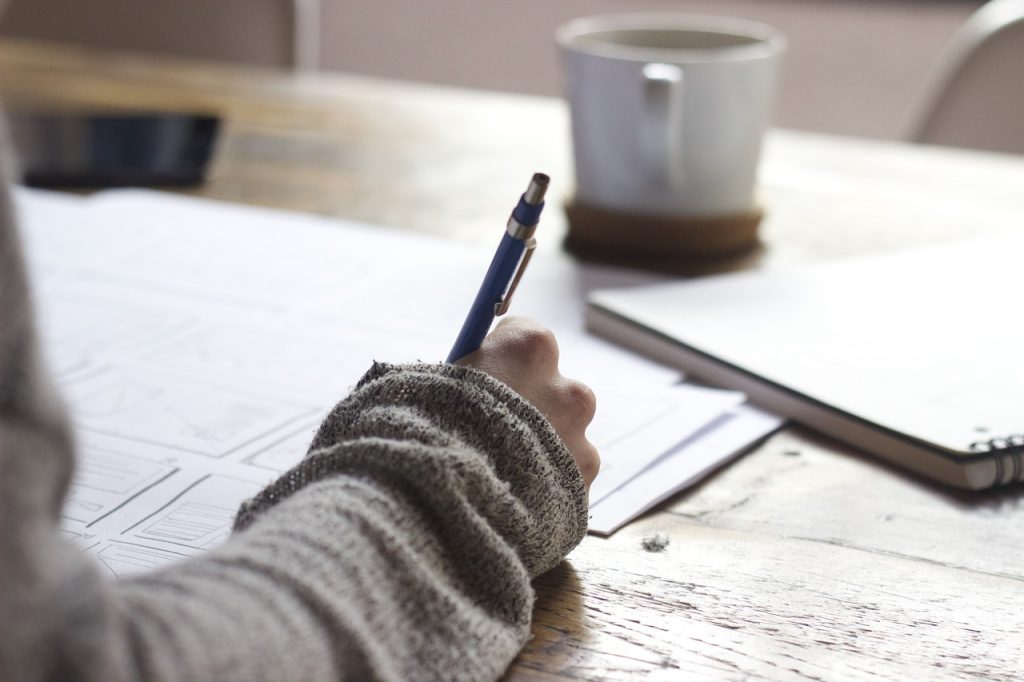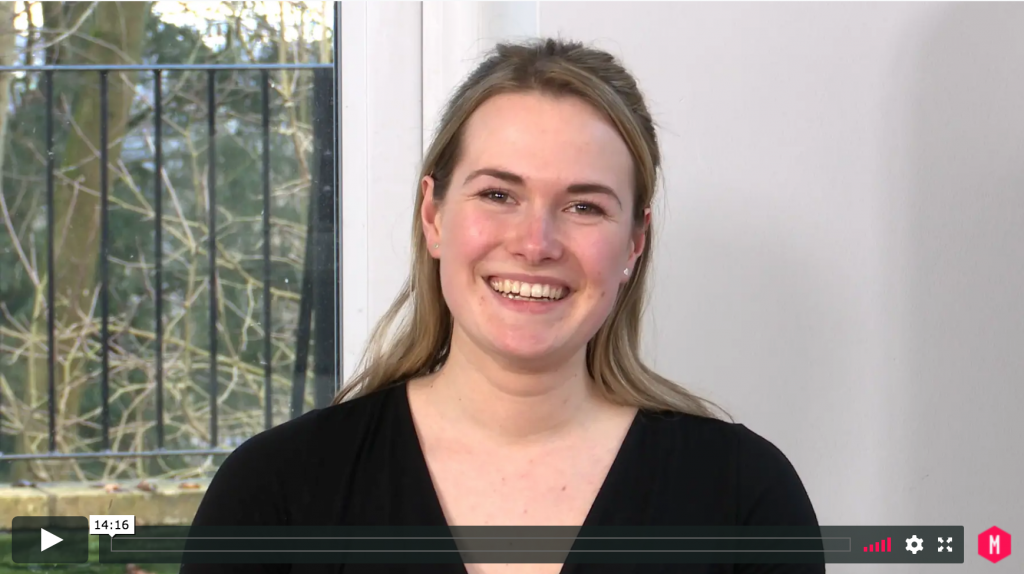What stops us practicing Yoga when we are busy? Yoga teacher, Robin Watkins-Davis practiced yoga throughout her GCSEs and found that it gave her more energy and focus. Here she shares her thoughts on how to make time for yoga during a busy exam schedule.

Yoga during exams
Yoga during exams. Sounds daunting, doesn’t it? Really, though, we should address the question of what stops us practicing yoga when we are busy?
I think it comes down to thinking that by doing more and more we are somehow getting better. I remember this feeling well with exams. The stress and angst leading up to the event made me feel that doing more would make me feel better. The truth is that there are only so many hours in the day. All we can do is our best. Best doesn’t mean cramming every last moment you can with facts and figures and working hard. Trying our best also means allowing our body to rest and restore which in turn provides us with energy, clarity, focus and efficiency. Know that what you have already done is enough.
Boost your confidence to prepare for exams
I remember a teacher reassuring me once, when I was doubting my ability and preparation leading up to an examination. “It’s not just about your preparation over the last few days, or weeks. In fact you have been preparing for this, ever since school began.” Somehow that made me feel more confident. I was able to trust that the time I had spent in the classroom over the years was more than enough. That in fact, yes, in that moment I was as prepared as I could be.
Planning for yoga during exams
My day was planned with time for healthy meals, morning yoga practice and 8 hours sleep. I would fit my revision in around that. I think often people try to cram in as much revision as they can cutting out the things that keep you healthy. At exam time it’s actually more important than ever to keep up these positive habits. For me yoga during exams helped me to keep healthy and happy. You are demanding a lot of your body and mind. If you want it to perform and have a successful outcome, it’s a good idea to care for your body and mind you may just find that it thanks you with successful results.

Learn to prioritise for yoga during exams
To prioritise tasks I would write a list before I sat down to revise and get everything out of my head then next to each task I would estimate how long each task would take. I would then calculate how long I had of revision time and then make a more realistic assumption of what I could achieve in that time, I would then start with the task that needed to be done first, I would try and get the most challenging thing done first, the task we so often avoid and trust that this was the best time for it as I had the most energy, I would save the smaller tasks for later on when I had less energy. I would try and leave as many unnecessary/small tasks as possible.
Having my phone on airplane mode or in another room was helpful, it’s better to just get it down and then go on the phone otherwise a task take longer and motivation can dwindle!
The benefits of doing yoga in the morning during exams
Doing yoga in the morning was an important start to my day. I discovered if I didn’t do it in the morning the likelihood of me practicing later on would be small! Once I got into the habit or waking up 30-60 minutes earlier it became easier and easier. In the end somehow 30 minutes on the mat seemed more energising and worthwhile than pressing snooze and having an extra 30 mins sleep.
How much time would to spend doing yoga during exams
I would aim for 30-60 minutes of physical yoga in the morning to wake up and spend lots of time walking and doing yoga in the weekends.
In the evenings I would often listen to a guided relaxation, visualisation or positive affirmation video either on movement for modern life or listening to Deepak Chopra or Dr. Wayne Dyer on YouTube. I have included the techniques I found most useful in helping me to relax and visualise success in my MFML series to help prepare for exams.

Revision buddies help during exams
For GCSE my friends and I would often set up dates over the weekend where we would revise together. We could then take short breaks. We would take walks or watch tv and then start revising again. Sometimes we would be really creative and make up games. I remember even coming up with science games to help us remember facts and figures.
During A-levels I mentored a boy in the year below and I found that really helpful and fun. I could pretend to be a teacher and it was a good way of revising last years topics and making studying interactive. One exercise that was particularly useful was marking his exam papers and tests using the examiners’ marking criteria. This helped me get inside the examiners’ head and understand what they were looking for. This is really useful as then when it comes to writing the exam you can then give the examiners what they want.
Yoga and other ways to Relax
Yoga and meditation was my main way to relax, I also loved baths, often practicing pranayama and meditation in the bath for the ultimate relaxing combo with Himalayan salts and candles. Going for walks or meeting up and having a laugh with friends was also great. We would sometimes watch a movie on Netflix starring Julia Roberts. She is my favourite female actress ever since eat pray love (which I have watched 15 times!)
>>Practice visualisation with Robin<<

Being Disciplined
I think my yoga and meditation routine helped me understand how important it is to be disciplined. It taught me the benefits of having a focused clear mind and that effort in making up earlier was rewarded throughout the day with greater sense of ease and balance. It taught me how to overcome thoughts and enabled me to train my brain enough so that I could apply this sense of focus to studying, making my revision periods more efficient, providing much needed time for play, sleep and relaxation.

About Robin Watkins-Davis:
Robin completed training to be a yoga teacher aged 17 in 2016. She is an ambassador for Teen Yoga and a youth ambassador for British Wheel of Yoga. Robin’s teaching style is based on the traditional Sivananda hatha yoga sequence and adapted slightly to make it comfortable, relevant and accessible for young people. Robin keeps the classes scientific, fun and neutral in terms of descriptions and spirituality as wants to keep her teachings open and accessible for majority of young people.





Leave a Reply